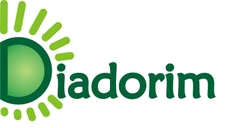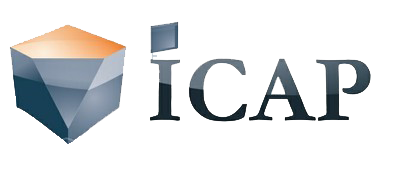Revenue Management: Estudo comparativo em hotéis de Florianópolis-SC
DOI:
https://doi.org/10.29149/mtr.v5i1.6254Palavras-chave:
revenue management, hotelaria, gestão de receitas, FlorianópolisResumo
A competitividade do setor hoteleiro vem crescendo diariamente. Com o surgimento das práticas de Revenue Management, a maioria dos hotéis vem implantando essa ciência e utilizando suas técnicas para otimizar e aumentar sua receita. Este artigo objetivou analisar como é feita a operação de Revenue Management em três hotéis executivos da região central de Florianópolis (SC); verificando as semelhanças e diferenças entre um hotel independente, um pertencente a uma rede hoteleira nacional e outro de uma rede internacional. A metodologia utilizada foi uma pesquisa aplicada e a lógica filosófica seguida foi o método dedutivo. Quanto aos objetivos, a pesquisa possuí o caráter exploratório e descritivo. A amostra foi definida de maneira não-probabilística por julgamento. Foi realizada uma pesquisa bibliográfica sobre o assunto e uma entrevista semiestruturada de acordo com as teorias estudas. A análise dos dados foi feita de maneira qualitativa, por meio de análise de conteúdo. Pode-se destacar que as principais semelhanças encontradas entre os hotéis foram: formação acadêmica dos entrevistados, práticas para realizar a previsão da demanda, utilização de tarifas flutuantes, canais de distribuição e Online Travel Agencies (OTA’s) mais utilizadas. Já algumas diferenças expressivas foram: a quanto tempo os hotéis utilizam RM, quantidade de níveis nas grades tarifárias e o tempo de antecedência que é feita a estratégia das tarifas do próximo ano.
Referências
Boaria, F., & dos Anjos, S. J. G. (2014). Revenue Management a Gestão de Receitas na hotelaria em Foz do Iguaçu–PR. Turismo-Visão e Ação, 16(1), 92-114.
Caldas, R., & Flores, M. (2007) Estudos da competitividade do turismo brasileiro.
Centurión, L. (2015). Princípios e práticas de Revenue Management: gerenciamento de demanda, de receita e de distribuição. São Paulo: SENAC São Paulo.
Cobra, M. (2009). Administração de marketing no Brasil. Elsevier Brasil.
Cooper, C., Fletcher, J., Fyall, A., Gilbert, D., & Wanhill, S. (2000). Turismo: princípios e prática. Bookman.
Gil, A. C. (1987). O questionário. Conceituação. Vantagens e limitações do questionário. ______. Métodos e técnicas de pesquisa social. São Paulo, Atlas, 124-132.
Gil, A. C. (2008). Métodos e técnicas de pesquisa social;(6a edição), São Paulo. Editora Atlas.
Gomes, J., & (2013). Como Aumentar as Receitas de um Negócio: O Conceito de Gestão de Receitas (Revenue Management).
Hilsdorf, C. (2011). A diferença entre preço e valor, Disponível em: <http://www.administradores.com.br/artigos/marketing/a-diferenca-entre-preco-e-valor/55728/> Acesso em: 20 de Junho de 2018.
Kimes, S. E. (2011). The future of hotel revenue management. Journal of Revenue and Pricing Management, 10(1), 62-72.
Kotler, P., & Keller, K. L. (2006). Administração de marketing–a bíblia do marketing, 12ª edição.
Lamb Jr, C., & Hair Jr, J. (2004). Princípios de marketing. São Paulo: Pioneira Thomson Learning.
Luz, B. S., dos Santos, D. C. T., & da Silva, A. F. (2017). GESTÃO HOTELEIRA. Revista Vianna Sapiens, 8(2), 25-25.
Morais, L. D. (2002). Yield management nos hotéis do Rio de Janeiro: levantamento e análise. 2002 (Doctoral dissertation, Dissertação (Mestrado) Departamento de Engenharia Industrial, Pontifícia Universidade Católica do Rio de Janeiro, Rio de Janeiro/RJ).
Otto, G. (2010). A força dos hotéis independentes, 2010. Disponível em: <https://hoteliernews.com.br/noticias/artigo-a-forca-dos-hoteis-independentes-17244>Acesso em: 11 de Setembro de 2018.
Pereira, L. N. (2016). An introduction to helpful forecasting methods for hotel revenue management. International Journal of Hospitality Management, 58, 13-23.
Pimentel, V., Aizezikali, A., & Baker, T. (2019). Hotel revenue management: Benefits of simultaneous overbooking and allocation problem formulation in price optimization. Computers & Industrial Engineering, 137, 106073.
Sparemberger, A., & Zamberlan, L. (2008). Marketing estratégico.
Stoessel, E. (2015) 8 Steps to Improving Demand Forecasts. Disponível em: <https://www.duettocloud.com/library/8-steps-to-improving-demand-forecasts>. Acesso em: 24 ago. 2018.
Downloads
Publicado
Como Citar
Edição
Seção
Licença
Copyright (c) 2020 Gabriel Arruda Bianchini, Tiago Savi Mondo

Este trabalho está licenciado sob uma licença Creative Commons Attribution 4.0 International License.
Autores que publicam nesta revista concordam com os seguintes termos:
- Autores mantém os direitos autorais e concedem à revista, sem ônus para a mesma, o direito de primeira publicação, com o trabalho simultaneamente licenciado sob a Licença Creative Commons Attribution que permite o compartilhamento do trabalho com reconhecimento da autoria e publicação inicial nesta revista
- Autores têm autorização para assumir contratos adicionais separadamente, para distribuição não-exclusiva da versão do trabalho publicada nesta revista (ex.: publicar em repositório institucional ou como capítulo de livro), com reconhecimento de autoria e publicação inicial nesta revista.
- Autores assumem exclusiva responsabilidade pelas suas opiniões emitidas nos trabalhos publicados nesta revista
















